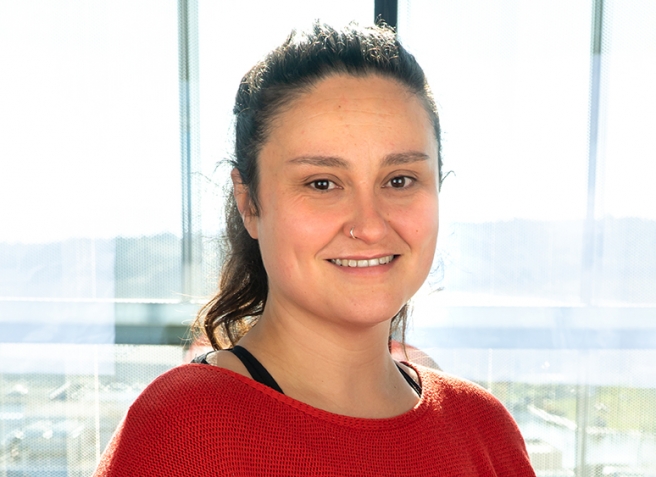
Marina Enterría González graduated in Chemistry at University of Oviedo (Spain) in 2008. In same year, she joined the Instituto Nacional del Carbón (INCAR-CSIC, Spain) through the University of Oviedo Internship Program. During this period she collaborated on the preparation of carbon-based materials for the photochemical degradation of heavy oils in contaminated marine water. In September 2009, she started her PhD at the same institution under the supervision of Fabián Suárez García. The research carried out during her PhD focused the design of carbon materials with tailored porosity using nanocasting methods. During her thesis work she undertook a research stay at Max-Planck Institute of Colloids and Interfaces in Golm (Germany) to explore the production of sustainable carbon materials from hydrothermal processes. In July 2013 she completed her PhD and joined the Laboratório de Catálise e Materiais (LSRE-LCM team), headed by Professor José Luís Cabral da Conceição Figueiredo and belonging to the Engineering Faculty of the University of Porto (FEUP, Portugal). As postdoctoral researcher on this group, her activity was focused on developing novel synthetic approaches to obtain functionalized nanostructured carbon materials for supercapacitor electrodes. In September 2017, Marina joined CIC energiGUNE as postdoctoral researcher where is currently working on graphene-based materials for sodium-air batteries and supercapacitor electrodes. In 2019, she was awarded by a “Jose Castillejo” mobility grant and performed a research stay at Ångström laboratory (University of Uppsala, Sweden) in order to explore the parasitic chemistry of sodim-air batteries by X-ray based techniques.

If you want to know the latest trends in energy storage and new developments in research, subscribe.

If you want to join a top-level team, collaborate with specialists in multiple disciplines or tell us about your concerns, don't think twice...